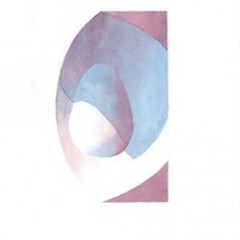Conference Report: Don DeLillo in the Twenty-First Century
by Alex Williamson What becomes of the prophet when the prophecy comes true? This was the recurring trope to the content and context of the conference The State of Fiction: Don DeLillo in the Twenty-First Century, held at the University of Sussex on 10th June 2015. The principal provocation – that DeLillo is essentially all written out – was first posed by Professor John N Duvall (Purdue University) during his extended morning keynote, ‘DeLillo’s Apostasy: Where has the Humour and the History Gone?’, and returned to during the closing observations of another leading scholar of the possibilities and limitations of DeLillo’s fiction, Peter Boxall (University of Sussex). Duvall’s opening contention was that the seriousness of DeLillo’s more recent work belies a personal philosophy which has all but given up on the political possibilities of laughter, where 9/11, and the Harper’s essay ‘In The Ruins of the Future’, signify a major break with the historically-focused fiction of DeLillo’s past. Duvall proposed that ‘in late DeLillo, the personal is political’. His switch from the power of history and the humour of political dread to the consciousness-shaping power of visual art and slowed time has disappointingly produced a sequence of comparatively minor works (The Body Artist, Falling Man, Point Omega). The spirit of ‘major’ DeLillo, Duvall argued, is now to be found in writers such as Jarrett Kobek, whose presentation of Islamic otherness in his 2011 novel Atta moves the reader closer to the terrorist impulse than DeLillo’s ‘paper-thin’ portrayal in Falling Man. The remainder of the conference was framed around three core sessions containing papers which loosely adhered to their thematic framework: sessions on terrorism, the everyday and the visual image yielded some idiosyncratic and intriguing approaches to DeLillo’s work. Stephanie Lambert (University of York) departed from commonplace critical representations of DeLillo’s postmodernism to instead reposition his oeuvre alongside the ‘new sincerity’ of writers such as Jennifer Egan and David Foster Wallace. Drawing on the sociology of Henri Lefebvre and Michel de Certeau, Lambert proposed that DeLillo’s critique of Jamesonian depthlessness and ahistoricity can be found in the textual sensuousness of his treatment of everyday objects. A paper by Kirsty Hemsworth (University of Sheffield) considered DeLillo in translation as a means of gleaning complex ‘cognitive maps’ within the temporal, spatial and psychological terrain of his fiction. The paper stressed the hermeneutic value of reading across translated texts as a retroactive form of analysis, revealing and enabling competing and reciprocal concepts of identity to be negotiated across the translation divide. These two highly nuanced papers on the overlooked and marginal in DeLillo stood out alongside the more familiar explorations of the ‘curious...
Transitions 6: Call for Papers
TRANSITIONS 6 – New Directions in Comics Studies 2015 Symposium – 31st October 2015, Birkbeck, University of London Keynote: Dr. Mel Gibson (Northumbria University) Respondent: Professor Roger Sabin (Central Saint Martins) CALL FOR PAPERS Deadline: 31st July 2015 We are pleased to announce the call for papers for the forthcoming 6th Transitions symposium, promoting new research and multi-disciplinary academic study of comics/ comix/ manga/ bande dessinée and other forms of sequential art. We welcome abstracts for twenty minute papers as well as proposals for panels. Possible topics include but are not limited to: text-oriented approaches – studies of key creators – historical and contemporary studies of production and circulation of comics – readerships and fan cultures – critical reception – formats, platforms and contexts – the (im)materiality of comics – archival concerns – formalist/narratological approaches – comics and aesthetics – adaptation, convergence and remediation – international iterations and transnational comics – children’s comics – political comics – comics and cultural theory – ideological/discursive critiques – web comics – graphic medicine – non-fiction comics – comics as historiography – comics practice and theory– cultural histories/geographies By thinking about comics across different disciplines, we hope to stimulate and provoke debate and to address a wide spectrum of questions, to map new trends and provide a space for dialogue and further collaboration. Abstracts for twenty minute papers should be no more than 250 – 300 words. Proposals for papers and panels should be sent as Word documents, with a short biography appended, and submitted by the 31st July 2015 to Hallvard, John, Nina, and Tony at transitions.symposium@gmail.com. Tweet Image by John Miers...



Recent Comments